Two-in-One for INCA
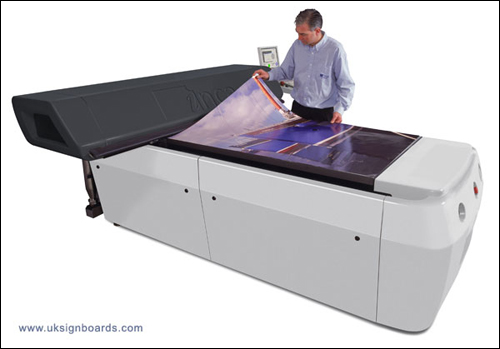
INCA START UP COMPANY HEADS FOR FIRST YEAR SUCCESS
Elementa UK, a start up company set up on the purchase of an Inca Digital machine, is approaching the end of its first year positive it will surpass its projected £180,000 turnover target and be in profit.
“After eight months we have already achieved all goals set out and are growing month on month,” says founder and managing director Phil Spinks. “The Columbia is the only machine with the provable reliability, durability and flexibility that could have enabled us to set up assured we could succeed. There are many similar machines but I wouldn’t bet my house on them.”
Elementa UK, which is based in Leicester, offers a discreet trade service to other printers, with or without a flatbed. Phil Spinks, who worked for GreenShires Group before leaving to set up his own business with partner Theresa Glover, does not wish to enter the direct retail market, which he describes as “already too cut throat”.
“There are many printers operating on a scale that only requires a limited amount of digital work throughout the year. Offering these printers a trade price solution and being able to support many trade customers at any one time has helped justify my purchase of the Columbia,” he says. “We can always help customers build to a position where they can buy their own equipment because even though I lose that contract in the end I will be developing work elsewhere meantime.”
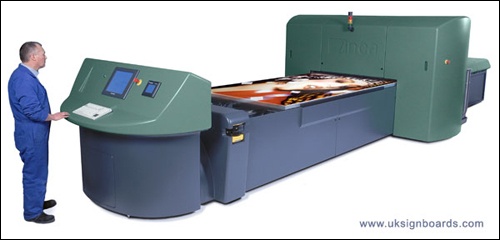
The four-colour flatbed has already output work onto a broad range of materials including concrete slabs, benches and yachting sails. The company handled work for the Grand Designs exhibition and also does some direct signage.
The Columbia is running 20 hours a day often. Mr Spinks’ longest week so far has been 125 hours. He plans to get through his first year without recruiting more staff so that he can evaluate the peaks and troughs but that cannot last forever as he is already evaluating his next inkjet investment.
“I looked at the Spyder as well and if the Columbia hadn’t been the right price I would have taken that route,” says Mr Spinks.
The Columbia has a print area of up to 3.2 x 1.6m and an output of 118 sq m per hour. It is capable of handling materials weighing as much as 40kg.
INCA SPYDER 320 ASSURES VIBRANT FUTURE FOR DAYTONA
Staffordshire based Daytona Visual Marketing is so impressed with the high quality results achieved by its recently installed Inca Spyder 320 that the company plans to increase its £3million annual turnover by expanding into the photographic reproduction and exhibition sectors.
As a machine capable of producing quality print at speeds of up to 80 sqm/hr, the Spyder 320 was originally installed to relieve the company’s semi automatic Thieme screen presses of point-of-sale and large-format advertising shorter print runs of between 20 and 100 units. However, since going live with the system, many customers have commented on the astounding results achieved by the Inca printer, which has prompted the company to look at penetrating new and more diverse markets.
“The Spyder 320 is perfect for high-definition work and I am therefore eager to use the system to grow our client portfolio,” says managing director Andy Wassall. “We have already embarked on a new creative initiative that will test new ideas and concepts, which will in turn lead to us broadening the range of applications we offer.”
Before making its purchase, Daytona scrutinised other major large format digital printers on the market to compare and evaluate the colour and quality capabilities of each machine. The combination of press and ink is critical. The Fujifilm Sericol Uvijet ink used with the Spyder 320 produces excellent colour brightness and lightfastness. Tests included colour matching prints with a series of Pantone colours, which are difficult to imitate with a four-colour set. Mr Wassell says: “The Spyder 320 produced the most remarkable results in all areas and we were particularly impressed with its ability to produce near-perfect Pantone shades including oranges, greens and blues.
“Colour is especially important for the types of market we serve as many of our customers operate in the retail and fashion industry. They expect precise and reliable colour and it is imperative that skin tones are consistent, the colours of the garments are exact and company logos are accurate. For this reason, we had to invest in the very best technology and the Spyder 320 scored the highest in everything from the system’s superior performance, to its small footprint and the standard of its components.
Also, the Spyder’s ability to reproduce sharp fine line and small text was outstanding; the mix of speed and quality offered by the Inca press will define a new standard in short run, large format printing within the screen and graphic arts industries.”
Inca’s Spyder 320 has a vacuum bed of 3.2 x 1.6 metres/126 x 63 inches. The Spyder 320 uses 28 picolitre drops, which combined with Inca’s own print head assembly, and unparalleled motion system produces sharp text and silky images. Like all other Inca machines, the Spyder 320 is unrivalled in the range of materials it can print accurately and in register such as MDF, plywood, lenticular lenses, metals, glass, flexible and rigid plastic.
Mr Wassall continues: “Compared to the hybrid machines on the market, flatbed technology is in my opinion, way ahead in terms of its ability to provide dependable results on a wider selection of rigid substrates. For example, stocks are rarely completely flat when they are loaded onto the press. The Spyder 320 overcomes this problem as it uses a powerful vacuum to suck the material into place. It maintains quality and keeps productivity at a maximum both through ensuring fewer errors occur and reducing overs. We are so impressed, a second installation is already being considered.”



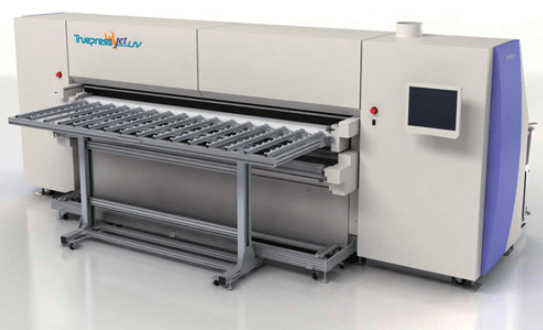
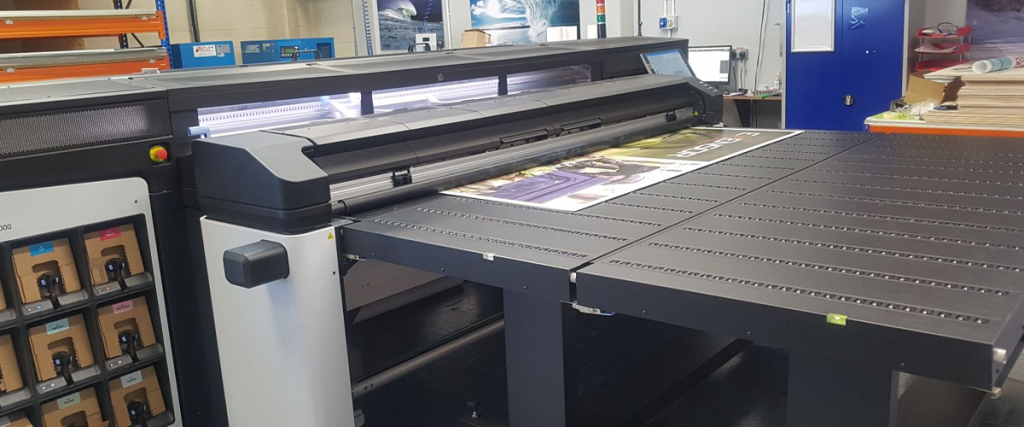
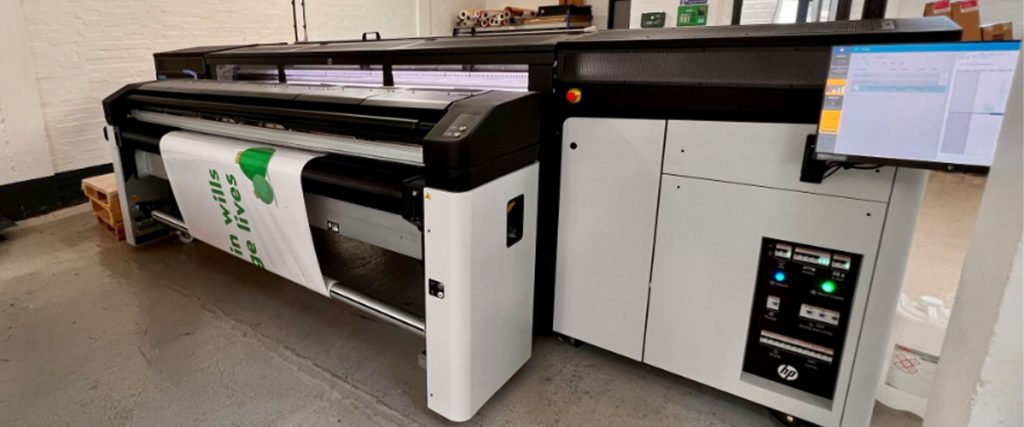
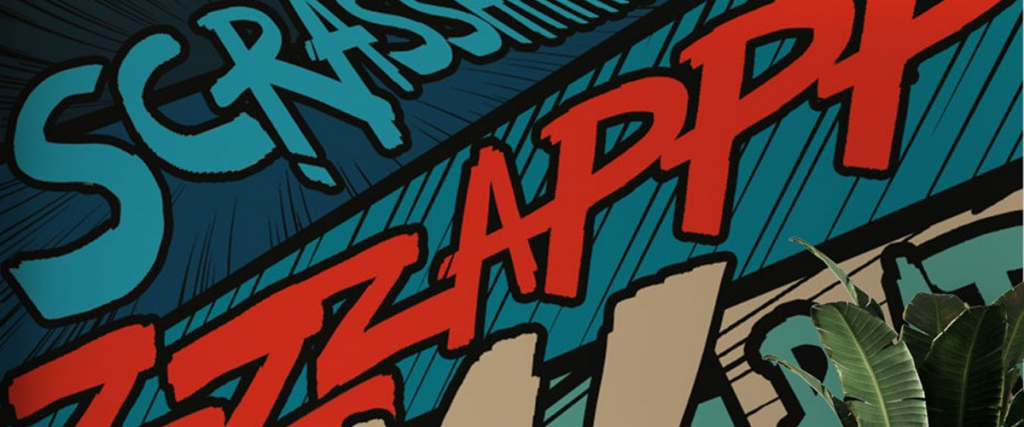
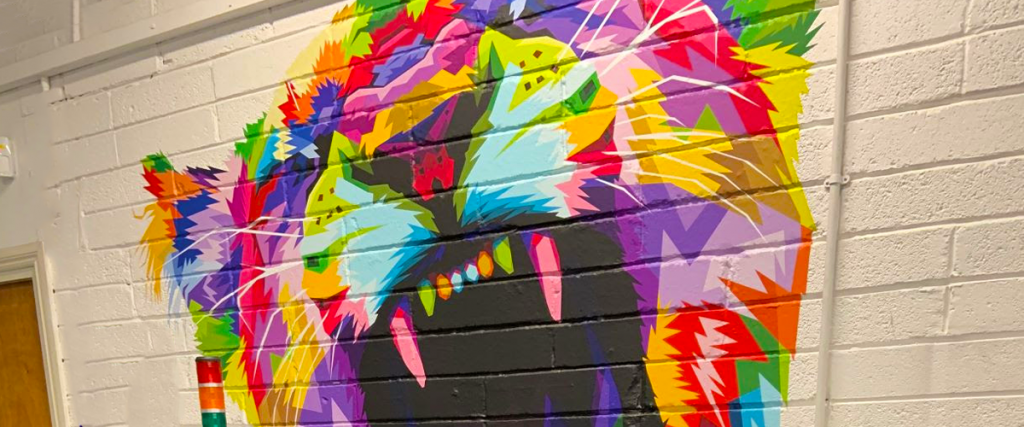
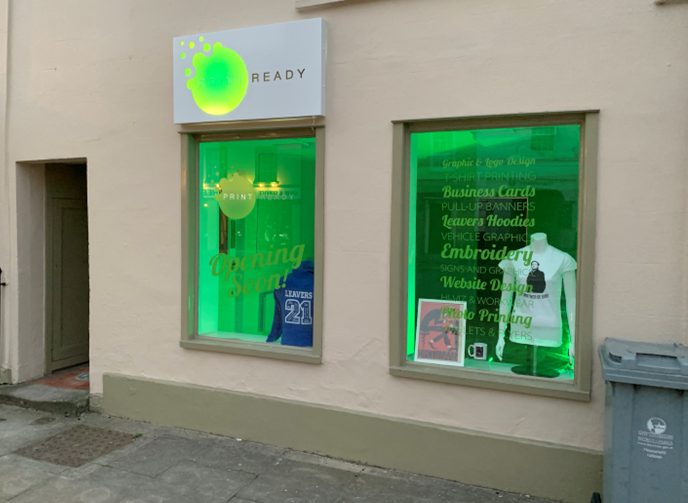
Responses